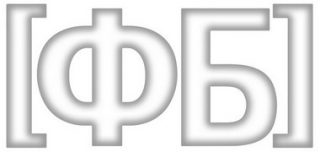The curriculum of the basic academic studies consists of compulsory and optional courses which provide necessary knowledge and skills for a basic academic studies degree in the field of individual departments.
The goal of the curriculum is to enable and strengthen the academic and professional competence of students in the fields of defense, protection, security, and human and social resources management in the civil sector, in the capacity of executives or officers in central, regional, or local administration, in large economic systems, small and medium enterprises and private companies, institutions for scientific research, educational centers, the non-profit sector, humanitarian organizations, inspection authorities, the media, etc. This requires knowledge in the fields of contemporary international relations and institutions, human rights, permanent/coordinated development, security systems, crisis situation and peace process theories, democratic control of use of force, contemporary forms of human life, material goods and ecosystem endangerment, as well as other relevant elements of contemporary integral security.
This concept of an interdisciplinary curriculum contributes to the development of the civil society in terms of security (general, national, individual), protection (of the environment and population from natural disasters, chemical accidents, as well as health and social protection), defense (from contemporary forms of threats), and human and social resources management.
The implementation of the Bologna Declaration and the Prague Communiqué on the standardization of European higher education into the curriculum of the basic academic studies of the Faculty bridges the gap between Serbian and global educational standards and provides our students with an easier access to the European educational and grading system, as well as to the transfer of knowledge and degrees.
The basic studies (basic academic and undergraduate studies) are available to students who have completed a four-year high school education and have passed the entrance exam.
The Faculty of Security Studies
The Curriculum of the Basic Academic Studies
-Security Studies-
1st Year (Semesters I and II)
|
|
TP |
|
|
N° of Classes |
|
|
|
Total |
Per Week |
|||||
|
1. |
AO |
I |
60 |
3+1 |
6 |
|
|
2. |
TM |
I |
75 |
3+2 |
7 |
|
|
3. |
AO |
I |
60 |
3+1 |
6 |
|
|
4. |
AO |
I |
75 |
3+2 |
7 |
|
|
5. |
AO |
II |
60 |
3+1 |
7 |
|
|
6. |
TM |
II |
60 |
3+1 |
7 |
|
|
7. |
TM |
II |
60 |
3+1 |
6 |
|
|
8. |
AO |
II |
60 |
3+1 |
6 |
|
| 9. | AO | Ehtics | II | 45 | 2+1 | 5 |
|
10. |
SA |
I and II |
90 |
2+1; 2+1 |
8 |
|
|
|
|
TOTAL: |
|
600 |
20 |
60 |
2nd Year (Semesters III and IV)
|
|
|
|
|
N° of Classes |
|
|
|
Total |
Per Week |
|||||
|
1. |
NS |
III |
60 |
3+1 |
7 |
|
|
2. |
NS |
III |
60 |
3+1 |
5 |
|
|
3. |
TM |
III |
60 |
3+1 |
7 |
|
|
4. |
NS |
III |
60 |
3+1 |
5 |
|
|
5. |
NS |
IV |
60 |
2+2 |
5 |
|
|
6. |
NS |
IV |
60 |
3+1 |
5 |
|
|
7. |
TM |
IV |
75 |
4+1 |
7 |
|
|
8. |
AO |
IV |
75 |
4+1 |
6 |
|
| 9. | TM | Defence Systems | IV | 60 | 3+1 | 5 |
|
10. |
SA |
III and IV |
90 |
2+1; 2+1 |
6 |
|
|
|
|
TOTAL: |
|
600 |
20 |
60 |
3rd Year (Semesters V and VI)
|
|
|
|
|
N° of Classes |
|
|
|
Total |
Per Week |
|||||
|
1. |
TM |
V |
60 |
3+1 |
5 |
|
|
2. |
NS |
V |
60 |
3+1 |
5 |
|
|
3. |
NS |
V |
60 |
3+1 |
6 |
|
|
4. |
NS |
V |
60 |
3+1 |
6 |
|
|
5. |
SA | Civil Protection |
V | 60 | 3+1 | 6 |
|
6. |
TM |
VI |
60 |
3+1 |
4 |
|
|
7. |
SA |
Optional Course 1 |
VI |
60 |
3+1 |
6 |
|
8. |
SA |
Optional Course 2 |
VI |
60 |
3+1 |
6 |
|
9. |
SA |
Optional Course 3 |
VI |
60 |
3+1 |
6 |
|
10. |
SA |
Optional Course 4 |
VI |
60 |
3+1 |
6 |
|
|
|
TOTAL: |
|
600 |
20 |
60 |
4th Year (Semesters VII and VIII)


